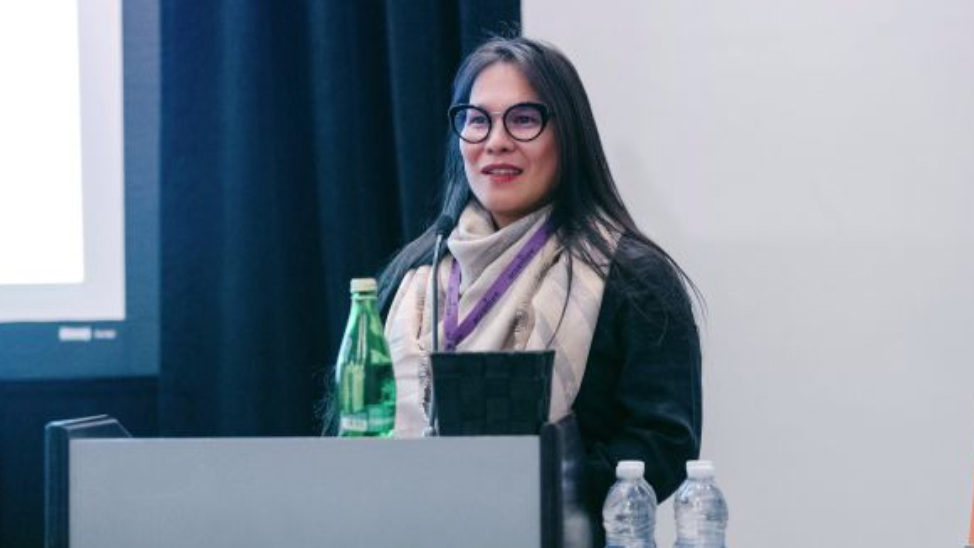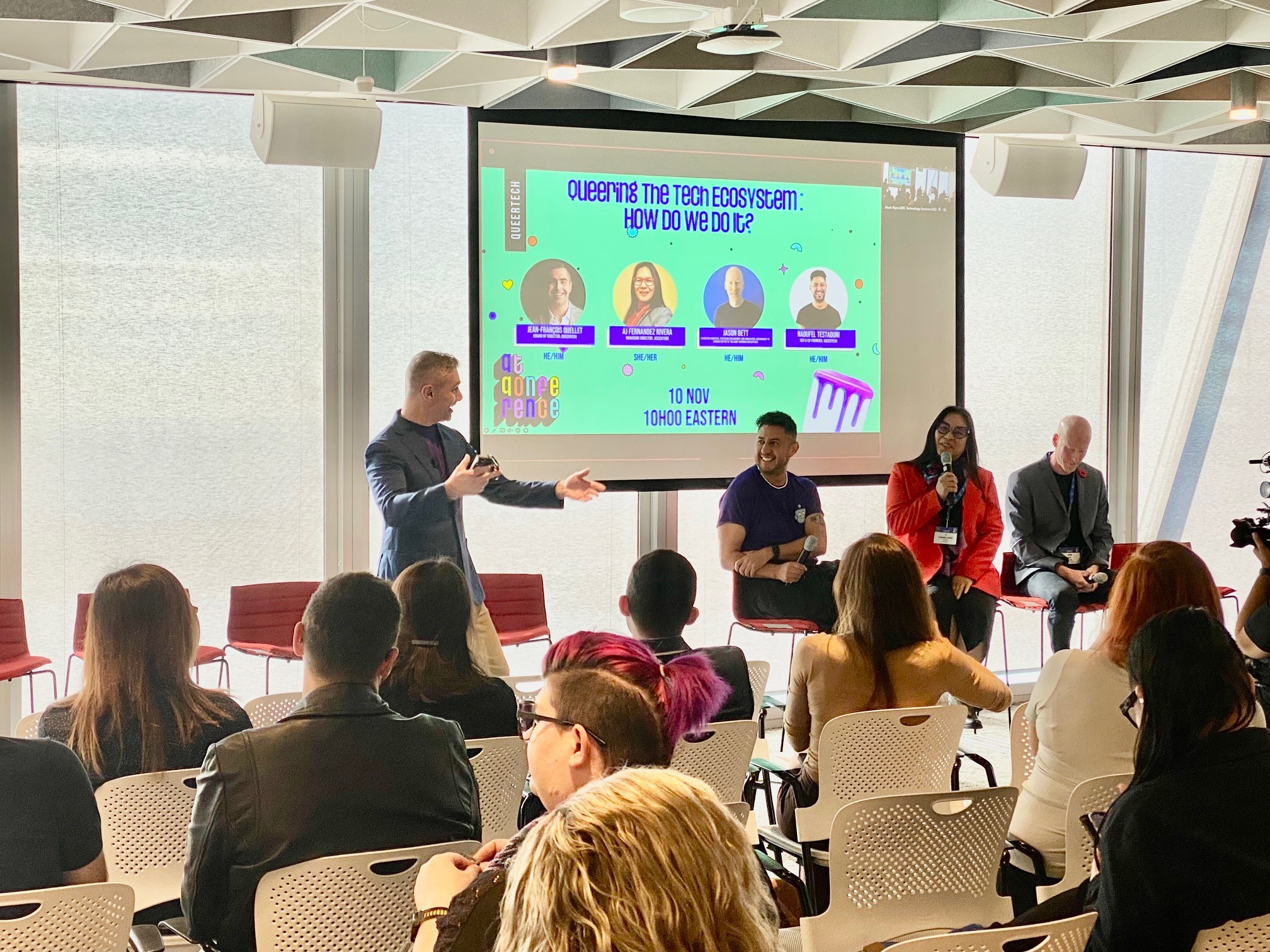
Hopefuls aiming to enter the tech industry don’t have to look further than AJ Fernandez Rivera for inspiration. The industry trailblazer has modest roots, starting as a computer programmer in the ’90s, and working her way through the U.S., U.K., and Asia-Pacific. She is now a managing director at Accenture Canada.
But working in IT isn’t the only thing she’s known for. While certainly a passion, she also advocates for queer people in tech, talking about the many challenges they face. From experience, she knows this industry is a good one to work in, but if ongoing barriers go unaddressed, the tech industry will miss out on talented individuals looking to do what they love.
This “personal passion” stems from challenges Fernandez Rivera faced herself, once feeling alone in a space that refused to understand her.
Unconscious biases are one of the biggest challenges, Fernandez Rivera told MobileSyrup. The thought process involves people using unconscious beliefs and stereotypes to categorize people into different groups. Everyone has them, but they may not know when they’re using them.
“When you are a queer person, and you join the industry, you can’t be your true self,” Fernandez Rivera said. “If we eliminate that barrier and make it an accepting environment, the potential of queer people to actually eliminate the chatter in [their] head and just come as [their] authentic self…[they’ll] be looked at on skills and talent rather than how [they] package themselves.”
Hiding her true, authentic self is a struggle Fernandez Rivera experienced. When she started working at Accenture in 1997, Fernandez Rivera didn’t reveal her identity as a trans-woman. Her professional life differed from her personal; she felt like the industry wasn’t ready for her.
But she didn’t let the unconscious doubt the industry held stop her from doing a job she loved. She quickly moved through the ranks of the company and established an LGBTQ+ network in Accenture’s Asia-Pacific region. Fernandez Rivera was a strong voice for the LGBTQ+ community at her company, but doubt was still there.
Coming out in her professional life was a big decision. She knew the industry wouldn’t change if she continued to hide who she was. Being alone in the tech industry put a “burden” on her shoulders, and she didn’t want others to be in the same position. “The challenge has always been being a unique individual, a unique person in the industry. I don’t want it to be [a challenge] in the future,” she said.
The final push came through a phone call with her best friend in the U.K. last year. That friend told Fernandez Rivera that visibility matters. “If you don’t tell your story, I don’t think things will change,” Fernandez Rivera recalls her friend as saying.
She took a big step and was pleasantly surprised. When she did come out to her company, she received nothing but support. She felt safe.

Fernandez Rivera (second from the right) speaking at a panel at the QT Qonference. Image credit: Karishma Singh/ Proof Strategies
But Fernandez Rivera acknowledges that everyone has their own journey of coming out. The best the industry can do is make it a safe environment for people to be themselves.
Training for unconscious bias is helpful, Fernandez Rivera said. Accenture rolled out training to its offices around the world, and many employees found it helpful. Training is now mandatory at the company. Allowing employees to declare their pronouns also goes a long way, a practice that can be done regardless of industry.
In November, Fernandez Rivera was part of a panel at the QT Qonference. It was the first conference put on by QueerTech, an organization that focuses on making the tech industry inclusive for LGBTQ2S+ people. The panel also contained speakers from the federal government, who shared they were also taking up the practice of allowing employees to share personal pronouns.
Fernandez Riveria said she was “impressed” to hear this. “If we normalize it…I feel like it would encourage more and more people to feel safe in the tech industry.”
Making it easier to work in tech also requires a landscape change with different sectors, including private, government, academic, and non-profit organizations. “Because if we want a landscape change, everyone needs to work together. The end goal is making sure that tech space is, number one, a safe space for queer people to build careers on and be proud of it.”
The panel was also a preview of what is possible and the ability of various players to work together to make a change. But there isn’t a singular answer to why it took so long for a gathering like the QT Qonference to come together at a large scale.
Fernandez Riveria believes timing played a role, as it took people in leadership roles time to realize the barriers. She believes having queer people in leadership positions played a role in creating more visibility and realization.
So what can the tech industry, and others like it, do moving forward? Fernandez Riveria says they need to revisit their policies. Displaying personal pronouns “matters a lot.” Mentoring and providing benefits employees are happy with also play a role. Tech companies should also create ally programs.
“I actually want to look forward to the day when there are actually more [queer] people in leadership positions because there is power in numbers.”
Image credit: Annayah Jean (AJ) Fernandez Rivera/Linkedin
MobileSyrup may earn a commission from purchases made via our links, which helps fund the journalism we provide free on our website. These links do not influence our editorial content. Support us here.


